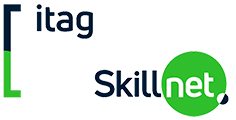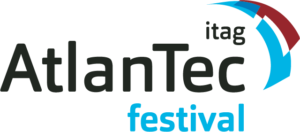The Project Management Institute (PMI) sponsors a project management accreditation programme. The purpose and goal of this programme is the development, maintenance, evaluation, promotion, and administration of a rigorous professional certification credential of the highest calibre. It is called the Project Management Professional (PMP®).
To be eligible for the PMP® Credential delegates must first meet general educational, specific project management educational and project management experience requirements and agree to adhere to a code of ethics and professional conduct.
The final step to becoming a PMP® is passing a multiple-choice examination1 designed to objectively assess and measure an individual’s ability to apply project management knowledge in the following three domains: People; Process; Business Environment. This computer-based examination is administered globally by Pearson VUE.
This course is designed to assist delegates to prepare for and take the PMP® Examination. The exam application is an online process and takes place outside course hours. After the final Course Module delegates can complete and – if ready – submit their application.
Once the application is accepted by the PMI1, the examination can then be scheduled and taken at Pearson VUE authorized Test Centres or online in proctored format.
1 The PMP Examination fees are not included in the course fees. Examination fees are $405 for PMI members, $655.00 for non-members (Dec 2024)
Note:
Full attendance of this PMP® Exam Preparation course provides 35 Contact Hours of Project Management Education
This PMP® Exam Preparation Course is aligned with the Project Management Professional (PMP®) Examination Content Outline Jan 2021
Course Overview
- Tips to help apply for the Project Management Professional (PMP®) examination
- Overview of the exam:
- Guidelines on how the PMP® questions are written
- Tips for taking the exam
- Reasons people fail the exam
- Exercises to help you understand the information you need to know – including formulae such as Earned Value
- Understanding PMI terminology and Project Management acronyms
- Detailed coverage of:
- The Project Management Framework and Project Lifecycles
- Business Environment
- The Role of the Project Manager
- Predictive Lifecycles
Integration, Scope, Schedule, Cost, Quality, Resource, Communications, Risk, Procurement, Stakeholder Management
- Agile/Hybrid Lifecycles
The Agile Approach, Lean, Kanban, Scrum, XP Artifacts, Accountabilities, Events
- Practice exams are presented before and after each Module
- Delegates will be provided with free access to an on-line exam simulator for a period of 12 months following course completion
- Delegates will be invited to join a dedicated on-line Group Forum which is created by the tutor prior to course start and supported for a period of 12 months after course The purpose of this on-line Group Forum is
- To provide 24/7 access to soft copy exam related content such as:
- Course Manual and Supporting Content
- Sample Exam Questions
- Revision material
- Links to recommended on-line simulated exam sites
- To advise of any changes/trends in exam questions
Course Outline
Module 1
Introduction
- PMP® Certification – How to apply for the exam
- Exam Structure, Format and Logistics
The PM Framework and Project Lifecycles
- Project Fundamentals
- Project Lifecycles (Predictive, Iterative, Incremental, Adaptive/Agile)
The Business Environment
- The Project Context
- Success Measures
- Internal and External Influences
The Role of the Project Manager
- Project Stakeholders
- Project Manager Competencies (The Talent Triangle)
Module 2
Project Integration Management
- Develop Project Charter & Project Management Plan
- Direct and Manage Project Work, Manage Project Knowledge
- Monitor and Control Project Work, Perform Integrated Change Control
- Close Project or Phase
Project Scope Management
- Plan Scope Management, Collect Requirements
- Define Scope, Create WBS
- Validate Scope, Control Scope
Module 3
Project Schedule Management
- Plan Schedule Management, Define & Sequence Activities
- Estimate Activity Durations, Develop Schedule
- Control Schedule
Project Cost Management
- Plan Cost Management
- Estimate Costs & Determine Budget
- Control Costs
Module 4
Project Quality Management
- Plan Quality Management
- Manage & Control Quality
Project Resource Management
- Plan Resource Management
- Estimate Activity Resources
- Acquire Resources & Develop Team
- Manage Team
Module 5
Project Communications Management
- Plan Communications Management
- Manage & Monitor Communications
Project Risk Management
- Plan Risk Management & Identify Risks
- Perform Qualitative & Quantitative Risk Analysis
- Plan & Implement Risk Responses
- Monitor Risks
Module 6
Project Procurement Management
- Plan Procurement Management
- Conduct & Control Procurements
Project Stakeholder Management
- Identify Stakeholders
- Plan, Manage & Monitor Stakeholder Engagement
Module 7
The Agile Approach
- The Agile Manifesto
- Lean & Kanban
- Introduction to Agile Methods
The Scrum Framework
- Artifacts – Backlogs, Increments
- Accountabilities (Product Owner, Developers, Scrum Master), Servant Leadership
- Events – The Sprint, Sprint Planning, Daily Scrum, Sprint Review & Sprint Retrospective
Module 8
The Product Goal and Product Backlog
- Working through an Iteration/Sprint
- Estimating Techniques
- Burndown Charts
- Completing an Iteration/Sprint
Module 9
Code of Ethics and Professional Conduct
- Responsibility, Respect, Fairness, Honesty
Course Closure
- Overview (Predictive to Agile)
- Q&A’s





